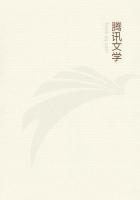Or look at certain of our own citizens,--and of their actions we have been not hearers, but eyewitnesses,--who have desired to obtain military command: of those who have gained their object, some are even to this day exiles from the city, while others have lost their lives. And even they who seem to have fared best, have not only gone through many perils and terrors during their office, but after their return home they have been beset by informers worse than they once were by their foes, insomuch that several of them have wished that they had remained in a private station rather than have had the glories of command. If, indeed, such perils and terrors were of profit to the commonwealth, there would be reason in undergoing them; but the very contrary is the case. Again, you will find persons who have prayed for offspring, and when their prayers were heard, have fallen into the greatest pains and sufferings. For some have begotten children who were utterly bad, and have therefore passed all their days in misery, while the parents of good children have undergone the misfortune of losing them, and have been so little happier than the others that they would have preferred never to have had children rather than to have had them and lost them. And yet, although these and the like examples are manifest and known of all, it is rare to find any one who has refused what has been offered him, or, if he were likely to gain aught by prayer, has refrained from making his petition. The mass of mankind would not decline to accept a tyranny, or the command of an army, or any of the numerous things which cause more harm than good: but rather, if they had them not, would have prayed to obtain them. And often in a short space of time they change their tone, and wish their old prayers unsaid. Wherefore also Isuspect that men are entirely wrong when they blame the gods as the authors of the ills which befall them (compare Republic): 'their own presumption,'
or folly (whichever is the right word)--
'Has brought these unmeasured woes upon them.' (Homer. Odyss.)He must have been a wise poet, Alcibiades, who, seeing as I believe, his friends foolishly praying for and doing things which would not really profit them, offered up a common prayer in behalf of them all:--'King Zeus, grant us good whether prayed for or unsought by us;But that which we ask amiss, do thou avert.' (The author of these lines, which are probably of Pythagorean origin, is unknown. They are found also in the Anthology (Anth. Pal.).)In my opinion, I say, the poet spoke both well and prudently; but if you have anything to say in answer to him, speak out.
ALCIBIADES: It is difficult, Socrates, to oppose what has been well said.
And I perceive how many are the ills of which ignorance is the cause, since, as would appear, through ignorance we not only do, but what is worse, pray for the greatest evils. No man would imagine that he would do so; he would rather suppose that he was quite capable of praying for what was best: to call down evils seems more like a curse than a prayer.
SOCRATES: But perhaps, my good friend, some one who is wiser than either you or I will say that we have no right to blame ignorance thus rashly, unless we can add what ignorance we mean and of what, and also to whom and how it is respectively a good or an evil?
ALCIBIADES: How do you mean? Can ignorance possibly be better than knowledge for any person in any conceivable case?
SOCRATES: So I believe:--you do not think so?
ALCIBIADES: Certainly not.
SOCRATES: And yet surely I may not suppose that you would ever wish to act towards your mother as they say that Orestes and Alcmeon and others have done towards their parent.
ALCIBIADES: Good words, Socrates, prithee.
SOCRATES: You ought not to bid him use auspicious words, who says that you would not be willing to commit so horrible a deed, but rather him who affirms the contrary, if the act appear to you unfit even to be mentioned.
Or do you think that Orestes, had he been in his senses and knew what was best for him to do, would ever have dared to venture on such a crime?
ALCIBIADES: Certainly not.
SOCRATES: Nor would any one else, I fancy?
ALCIBIADES: No.
SOCRATES: That ignorance is bad then, it would appear, which is of the best and does not know what is best?
ALCIBIADES: So I think, at least.
SOCRATES: And both to the person who is ignorant and everybody else?
ALCIBIADES: Yes.
SOCRATES: Let us take another case. Suppose that you were suddenly to get into your head that it would be a good thing to kill Pericles, your kinsman and guardian, and were to seize a sword and, going to the doors of his house, were to enquire if he were at home, meaning to slay only him and no one else:--the servants reply, 'Yes': (Mind, I do not mean that you would really do such a thing; but there is nothing, you think, to prevent a man who is ignorant of the best, having occasionally the whim that what is worst is best?
ALCIBIADES: No.)
SOCRATES:--If, then, you went indoors, and seeing him, did not know him, but thought that he was some one else, would you venture to slay him?
ALCIBIADES: Most decidedly not (it seems to me). (These words are omitted in several MSS.)SOCRATES: For you designed to kill, not the first who offered, but Pericles himself?
ALCIBIADES: Certainly.
SOCRATES: And if you made many attempts, and each time failed to recognize Pericles, you would never attack him?
ALCIBIADES: Never.
SOCRATES: Well, but if Orestes in like manner had not known his mother, do you think that he would ever have laid hands upon her?
ALCIBIADES: No.
SOCRATES: He did not intend to slay the first woman he came across, nor any one else's mother, but only his own?
ALCIBIADES: True.
SOCRATES: Ignorance, then, is better for those who are in such a frame of mind, and have such ideas?
ALCIBIADES: Obviously.
SOCRATES: You acknowledge that for some persons in certain cases the ignorance of some things is a good and not an evil, as you formerly supposed?
ALCIBIADES: I do.














